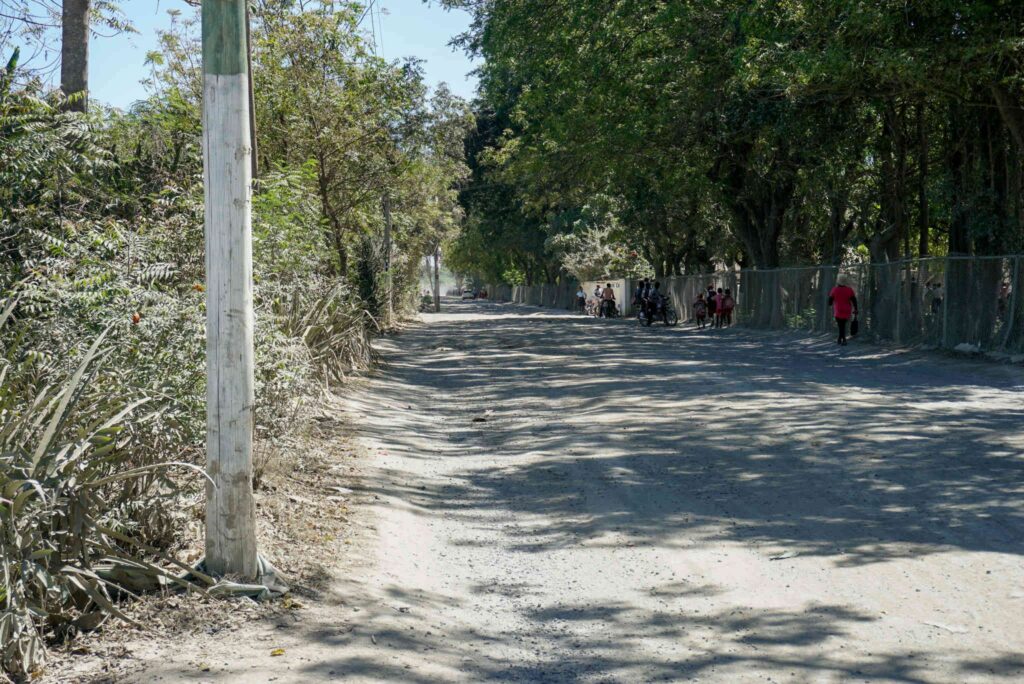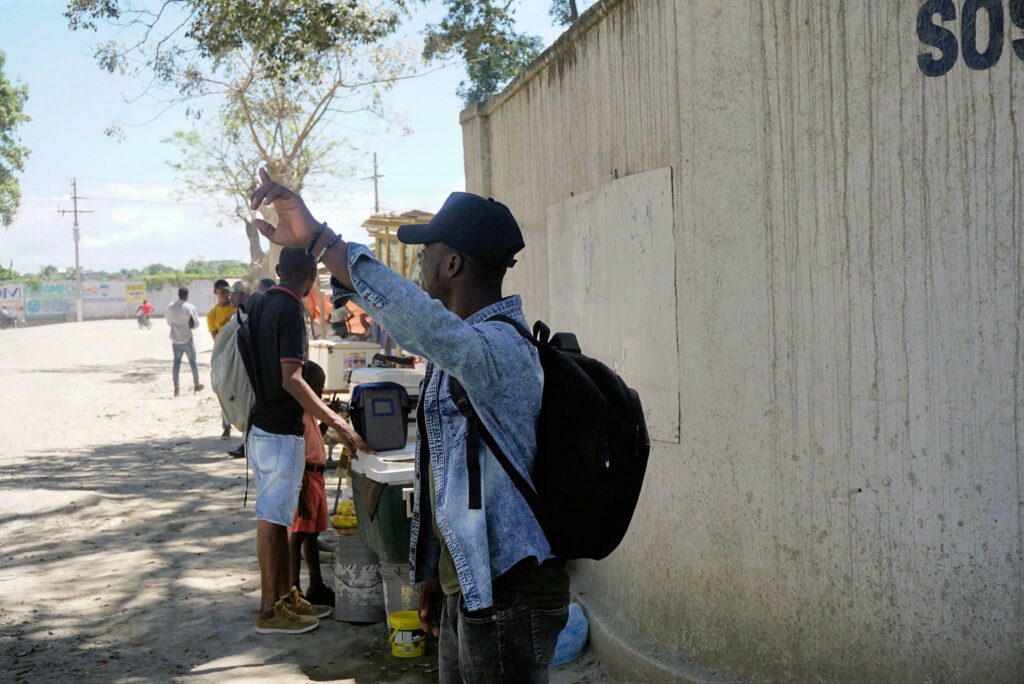
CAP-HAÏTIEN, HAITI — Sherlyne Ligène spent five years studying to achieve her dream of becoming a fashion designer, but completing her studies wasn’t the biggest challenge she faced.
To access her classes — at the Université Publique du Nord au Cap-Haïtien, a public university, and at SOS Children’s Villages, a vocational school just over half a mile away — she had to navigate a long, dusty dirt road with no public transport options other than motorbike taxis. It’s the only route available to students traveling from the north of Haiti’s second-largest city to both colleges. For those who cannot regularly fund motorbike taxis, hitchhiking is their only option.
Ligène, who graduated in 2021 and now runs her own business selling her clothing and accessory creations, says the 30-minute journey by motorbike taxi to get to school via the neighborhood of Haut-du-Cap cost 150 Haitian gourdes (approximately 1 United States dollar); with no money coming in, she couldn’t fund this mode of transport, so she hitchhiked each day.
“There were drivers who sometimes pretended to give us a ride,” Ligène says. “We see them slow down but as soon as we start walking toward them, they drive off. This is very humiliating for us, especially when other people are watching.”

As the cost of fuel has dramatically risen in Haiti, the price of a motorbike taxi ride has more than tripled to 500 gourdes (about 3 dollars) in the last two years.
The road has seen no improvement over the years. Students are often exposed to floodwater from the nearby river, making it impassable for motorbike taxis.
For those students who live in the south of the city, coming from Madeleine, a neighborhood in La Petite Anse, the one road to access the schools is also a dirt road, plagued with potholes. This road doesn’t flood but is, like the northern road, dusty during the summer and muddy during the rainy season.
If students can’t get to school by motorbike taxi or hitchhiking, many have to return home, unable to access their education that day. The colleges offer no transportation for their students, and road improvement announcements over the years have been met with skepticism by those who have endured these risky routes for years.
SOS Children’s Villages, where Ligène studied haute couture, was established in Cap-Haïtien in 1989. The school offers nine vocational programs, including fashion design as well as plumbing, cosmetology and car mechanics, to more than 800 students, principal Sandy Gabriel says.
“Although the vocational school does not provide buses or alternative means of transport to students who come from near and far, they still manage to make the journey to school,” Gabriel says. “Some of them take a motorcycle taxi and others hitchhike.”
Down the road, serving around 2,000 students, UPNCH is one of 18 public universities in Haiti that come under the authority of the Ministry of National Education and Vocational Training, two of which, including UPNCH, are in Cap-Haïtien.

Sadrack Ordena, secretary general of the university and an alum, says when the school first opened in 2007, a bus was provided for students but it stopped running after two years — a decision she couldn’t explain.
Students aren’t the only ones who struggle with transportation. While some teachers have cars, those without who don’t get rides with their colleagues also must hitchhike.
Splandeur Toussaint, a former student of UPNCH and now a part-time statistics professor at the university, says he has heard rumors of students and teachers being attacked during their daily journey to the schools.
“In general, people prefer not to talk about it,” says Toussaint, referring to any attack on those who hitchhike to school. “I am not surprised that the victims’ identities have not been revealed.”
Ordena and Gabriel both deny anyone has been assaulted while traveling to the schools.
Haut-du-Cap police inspector Edrice Demesvar says he knows of one incident in March when a student was assaulted while hitchhiking to college. The student was attacked by the driver of the vehicle she had traveled in after he demanded payment for the ride; she suffered a broken arm. The driver has since been arrested, Demesvar says.
The risk of hitchhiking is a daily fear for many.
“I really don’t like hitchhiking,” says Lovenski Chery, a student at the university. “We can come across very nice people, but we are also propositioned and sexually harassed by others.”
But while college bosses confirm they are taking steps to address the situation, they admit to having other projects they deem more important than securing a reliable and safe mode of transport for students.
“We are taking the necessary steps to get a bus for the students but we have other priorities at this time, such as building more classrooms due to the increasing number of students,” Ordena says. “Insecurity is everywhere. Things are not as bad in Cap-Haïtien but we still worry about our students hitchhiking every day.”
Cap-Haïtien Deputy Mayor Patrick Almonor was unavailable for comment.

Philippe Valcin, who is the coordinator of Assemblée de la Section Communale of La Petite Anse, the administrative division of La Petite Anse, says a project is planned to improve the north and south roads with funding from the World Bank, the United Nations Development Programme and the U.S. Agency for International Development. Plans include resurfacing the road and diverting the nearby river to the north to stop flooding following heavy rainfall.
Some students doubt the project will ever move forward.
“We have been told the same things over and over again,” says Jonas Ortil, a car mechanics student at the vocational school. “But I really hope something gets done; it would be such a relief for the majority of students like myself.”
Meanwhile, Ligène says she will never forget her years of hitchhiking. She remembers every humiliation and people telling her how wretched she was for hitchhiking to school.
“Hitchhiking was a cheap alternative for me,” Ligène says. “I will never forget about this part of my life. But now that I am building a career, I know that it definitely wasn’t for nothing.”
Verlande Cadet is a Global Press Journal reporter based in Haiti. Emeline Berg, GPJ, translated this article from French. This story was originally published by Global Press Journal.









